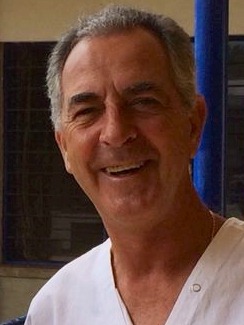SICOT e-Newsletter
Issue No. 69 - August 2014
Articles by SICOT Members
 FIMAC in BurundiÂ
FIMAC in Burundi Francesco Falez
SICOT National Representative of Italy â Rome, Italy
Almost seven years ago I was invited by a fellow orthopaedic surgeon, Vincenzo Monti, to spend some time in Burundi, a small Central African country, for some humanitarian work he started after the ethnic-based civil war which took place in that country for so many years.
Together with a Burundian nun, he reactivated the Bubanza Hospital, which was destroyed by the revolutionaries during the war, with a non-profit organisation, the International Foundation of Doctors for Central Africa (FIMAC â Fondazione Internazionale Medici per lâAfrica Centrale).
Accepting his invitation, I flew to Bujumbura, the capital city, and found myself in Burundi, a country that changes all your approaches to the health system and the management which you are used to. Working there is challenging due to the totally different needs of the patients and the limited resources you can count on, but it gives you the opportunity to rediscover certain aspects that you may have forgotten when you work in more business-oriented institutions.
.jpeg)
Dr Falez with staff members at Bubanza Hospital
I found myself in the middle of a multitude of patients begging with absolute dignity for some relief from their suffering. At the end of the treatment the smile on their faces expressed all their gratitude and made me realise that I represented for these patients their only hope.
Despite the language barrier I had to develop a front line surgery far from my usual decisional patterns, the first goal of treatment being to have the patient resume work activities; better a well-performed amputation than a poorly managed external fixation and better well-positioned K-wires than an inadequate plate for stabilising a fracture. With no dedicated devices, orthopaedic surgeons need to adapt to every single situation and sometimes to be reinvented or taken from his or her origins.
Since my very first experience there I have been bewitched. Once I was back home, I started to collaborate with FIMAC. I was involved in not only its organisation and fundraising with personal donations, but more importantly also, whilst President of the Italian Orthopaedic Association, enrolling surgeons from different parts of the country willing to share with us their skills and knowledge, and trying to involve as many orthopaedic friends as possible in order to create a rotation and ensure a presence on site no less than every other month.
At the moment FIMAC can count on the support of many orthopaedic surgeons around Italy and will accept any others who would like to share their experience for the good of this country.
Traumatology, congenital disorders such as clubfoot, haematogenous osteomyelitis, acquired varus deformity (pseudo Blount) are the most typical pathologies to treat in a period of two and a half weeks spent in Bubanza, a small village 45 km from Bujumbura. Until now we have performed more than 2,000 procedures with an average of 30-40 operations during each two-week time frame.
FIMAC is also seeking bilateral training programmes whereby local doctors visit surgeons in closer countries (Tanzania, Kenya) to improve their experience or assist surgeons visiting Bubanza Hospital.
For more information about FIMAC, please visit www.fimaconlus.org.
Â